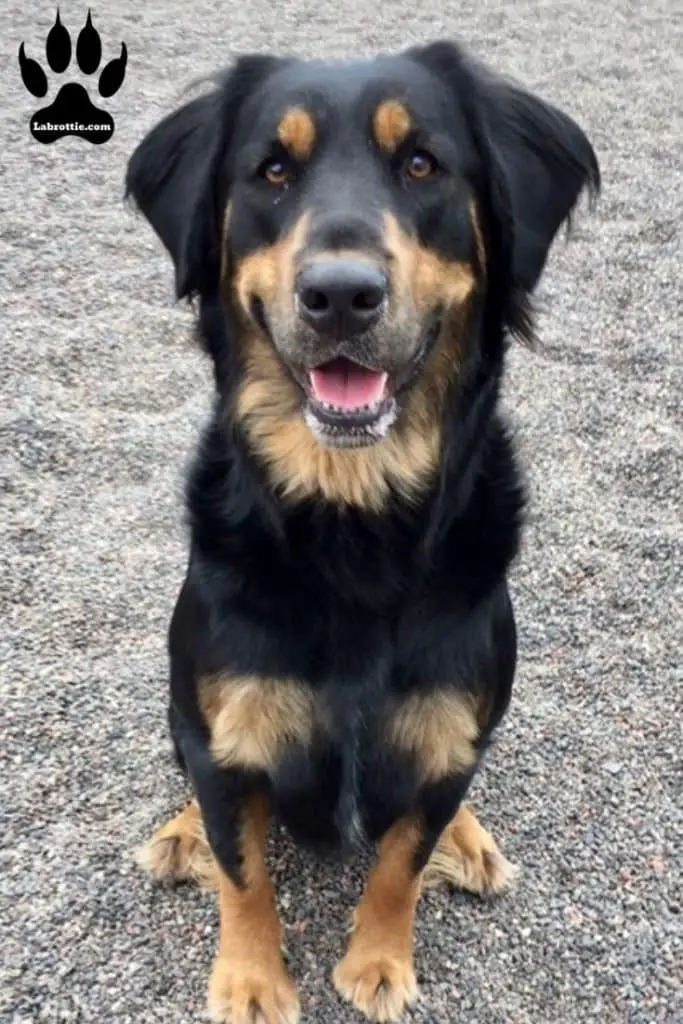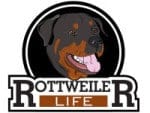There are many who love the looks of a Rottweiler. But they are intimidated by the attitude of this breed. Labrador is a favorite of many people for their gentle and easy-going nature. But they lack the robust look and fierceness that Rottweiler has. If you too are in any such dilemma then probably a Labrador Rottweiler puppy will be best for you.
Labrottie, as a Labrador Rottweiler is famously called, combines the qualities of both these breeds. While Labrador tops the list of top 10 most popular dog breeds in the U.S., Rottweiler comes at number 10 on the list. So you know the breed between 2 top breeds will yield a top-class pup!
Read: How to Calculate Rottweiler Years to Human Years?

Physical Features Of A Labrador Rottweiler Puppy
The features of a Labrottie will essentially depend on the features of their parents. So the coat color may be dominated by either of the parents’ color or be a mix of the two. While Rottweiler is a heavy breed and weighs around 110 pounds, Labrador is much lighter and weighs only about 65 to 80 pounds. So your mix pup may lie anywhere in the range between these two.
As for the height of a Labrottie, it will be in the range of 22 to 27 inches. Similarly, the size of your puppy would lie between those of Rottweiler and Labrador’s. They are generally not as big as a Rotties though.
Grooming Your Labrador Rottweiler Puppy
Thankfully, the coat length of both the parent breeds is short. So the pup will also have a pretty short coat which will require less grooming. Weekly brushing and bathing would suffice.
But as Labradors shed heavily at certain times in a year, your pup may need regular brushing at those times. This is mostly during winter since Labs have a double coat to protect them. If your Labrador Rottweiler puppy inherits this feature then you’ll have to take some extra care.
Temperament And Personality Of A Labrottie
This would be a total gamble, my friend. Which features your pup will inherit depends completely on the genes. They may turn out to be goofier and fun like a Lab or more serious like a Rottie. You might get some help by looking at their parents. But there is only one way to know their personality, by letting them grow up in a loving household.
Credit: Explore The World
Health And Training Requirements
Always use positive training with dogs, no matter what breed they are. Giving them punishments may prove to be counter-productive. Your dog will stay obedient as long as you train them lovingly, with some discipline.
Read:What Do You Know About The Roman Rottweiler?
As for the health, your pup’s pedigree will reveal their vulnerabilities. Check if your pup has suffered any damage due to excessive inbreeding. Hip dysplasia is a common disease in these pups. But generally, it is believed that mix-breeds are more resistant to diseases than pure breeds.
Whether your Labrador Rottweiler puppy will be a good pet or not depends on you too. How much goodness you can bring out of them is important. Socialize your dog well and train them, it will make your pet a good pet. Go ahead and get one, you won’t regret it!


